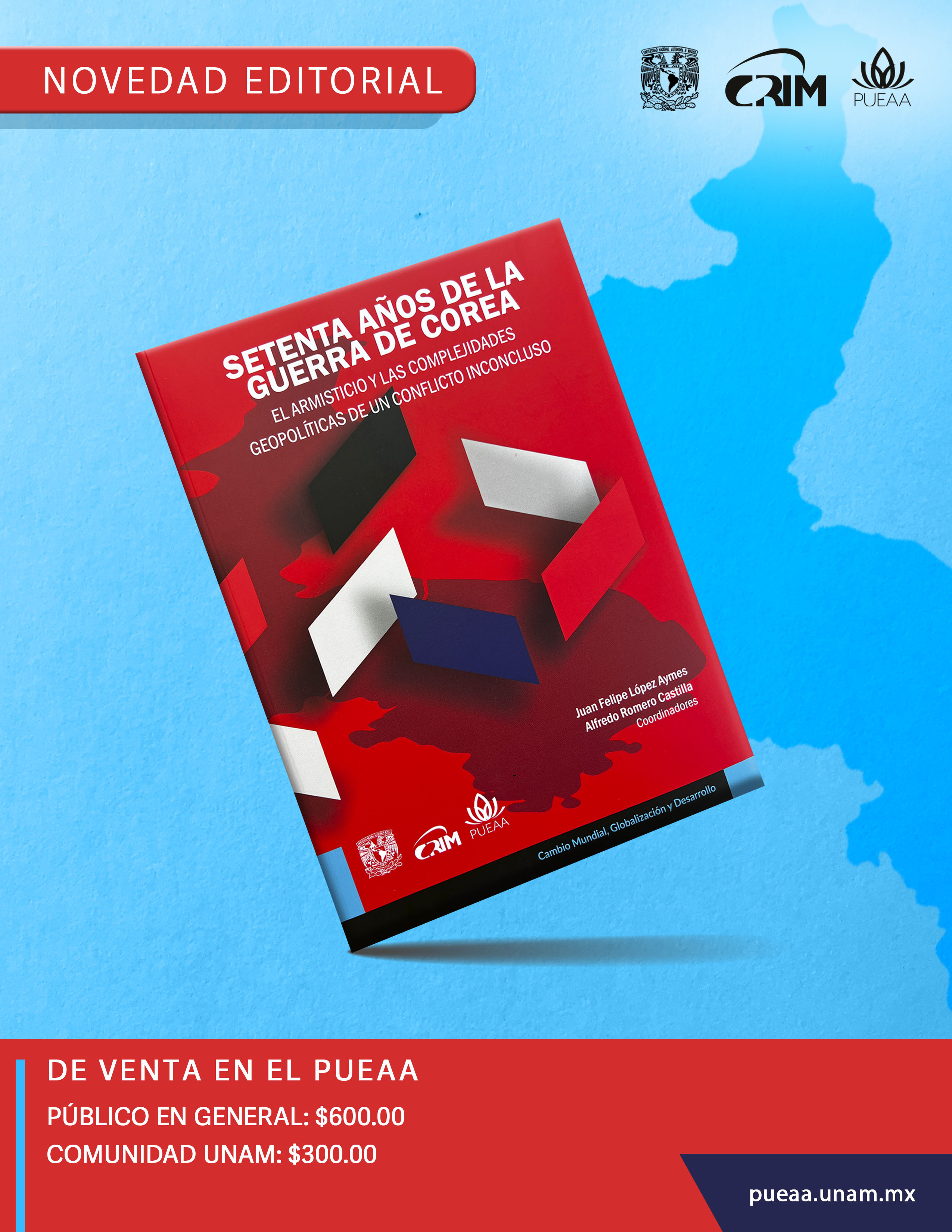He holds a PhD in International Relations from the University of Sussex, United Kingdom; a Master's degree in International Studies from Yonsei University in Seoul, Korea, and a Bachelor's degree in International Relations from the School of Political and Social Sciences of the National Autonomous University of Mexico (UNAM). Researcher at the Regional Center for Multidisciplinary Research of the same university, where he participates in the "Global Change, Globalization and Development" program. Researcher level II of the National System of Researchers (SNI) of the National Council of Science and Technology (CONACYT). In 2014, he collaborated as a research associate at the Center for Asian Studies of the Autonomous University of Nuevo León. From 2007 to 2013, he was a professor-researcher at the Center for Asian and African Studies at El Colegio de México. His research topics are: the political economy of international development cooperation and the relationship of Asia Pacific and Latin America, comparative political economy in Northeast Asia, the political economy of development in the case of South Korea, and transnational corporations in Asia Pacific. Author of the book " South Korea: political economy of institutional change", Mexico, El Colegio de México, 2015; he has written several articles and book chapters on institutionalism, Korean political economy, as well as topics related to the mechanisms of economic cooperation in Asia Pacific. He has taught courses at doctoral, master's and undergraduate levels at Colmex, UNAM, UCLA, ITESM, ITAM and UANL, and participates as a teacher in the Global E-school program of the Korea Foundation for Latin America.


El 27 de julio de 2023 se conmemoró el 70 aniversario de la firma del armisticio que puso pausa a la guerra de Corea. Desde esa fecha, la situación de una península dividida y el estado latente del conflicto armado sigue siendo la realidad imperante, a pesar de los numerosos intentos de transformarla por parte de los principales actores regionales y de muchos otros agentes de la comunidad internacional. ¿A qué se debe esta anomalía histórica? ¿Por qué ha sido tan difícil establecer un acuerdo de paz que ponga fin a la condición que genera tantas tensiones? En esta obra colectiva analizamos diversos aspectos de una problemática compleja, como el proceso de división de la península coreana, la guerra cuyo carácter civil y, a la vez, internacional determinó las dinámicas de seguridad regional, el fracaso de los intentos tempranos para establecer un régimen de paz, el programa nuclear norcoreano y las sanciones que buscan revertir su desarrollo, así como las consecuencias que todo eso tiene para la creación de confianza y la cooperación. También se estudian las políticas seguidas por los protagonistas, Corea del Norte y Corea del Sur, y de las potencias con intereses en la región. En conjunto, los capítulos que componen este libro proporcionan un panorama completo y objetivo sobre los prospectos de paz y la unificación, con perspectivas críticas que desafían los lugares comunes de una discusión maniquea en la que todas las partes son víctimas y beneficiarios del statu quo.

Three decades after the birth of the Asia-Pacific Economic Cooperation (APEC) forum, profound changes have been observed in the international economic system. Today, this intergovernmental forum faces major challenges in implementing its ambitious agenda in the areas of economic liberalization, trade facilitation and cooperation among member countries. Readers of this book will find in it a detailed diagnosis of its evolution and achievements, but also of the problems it faces in the present "crisis of multilateralism", triggered by the neo-protectionist policies of the United States. In order to achieve this objective, leading national researchers from public and private higher education institutions, most of which are members of the Mexican Consortium of APEC Study Centers, were invited to participate under the leadership of the APEC Study Center located within the University Program for Asian and African Studies (PUEAA) of the National Autonomous University of Mexico (UNAM).